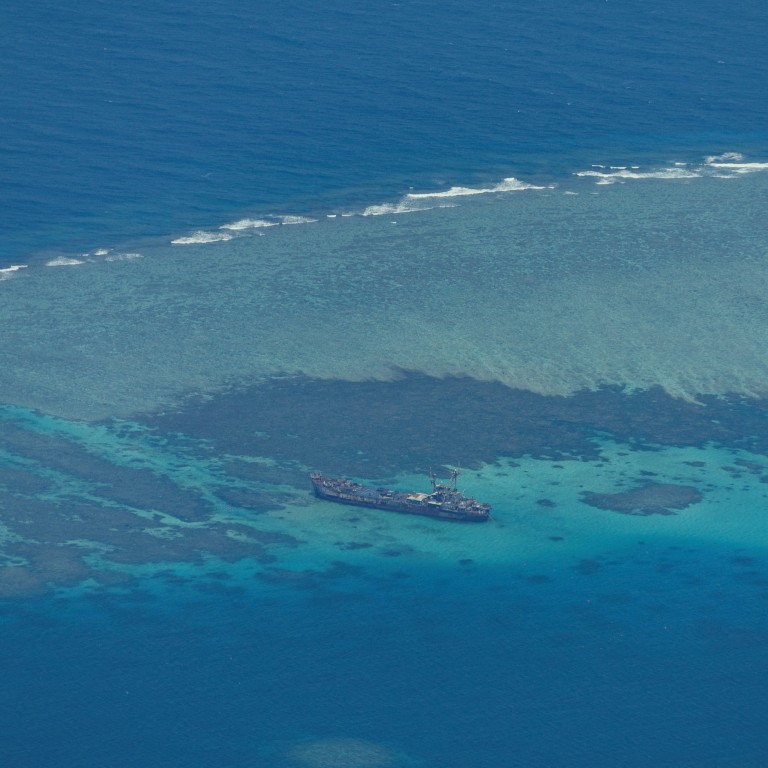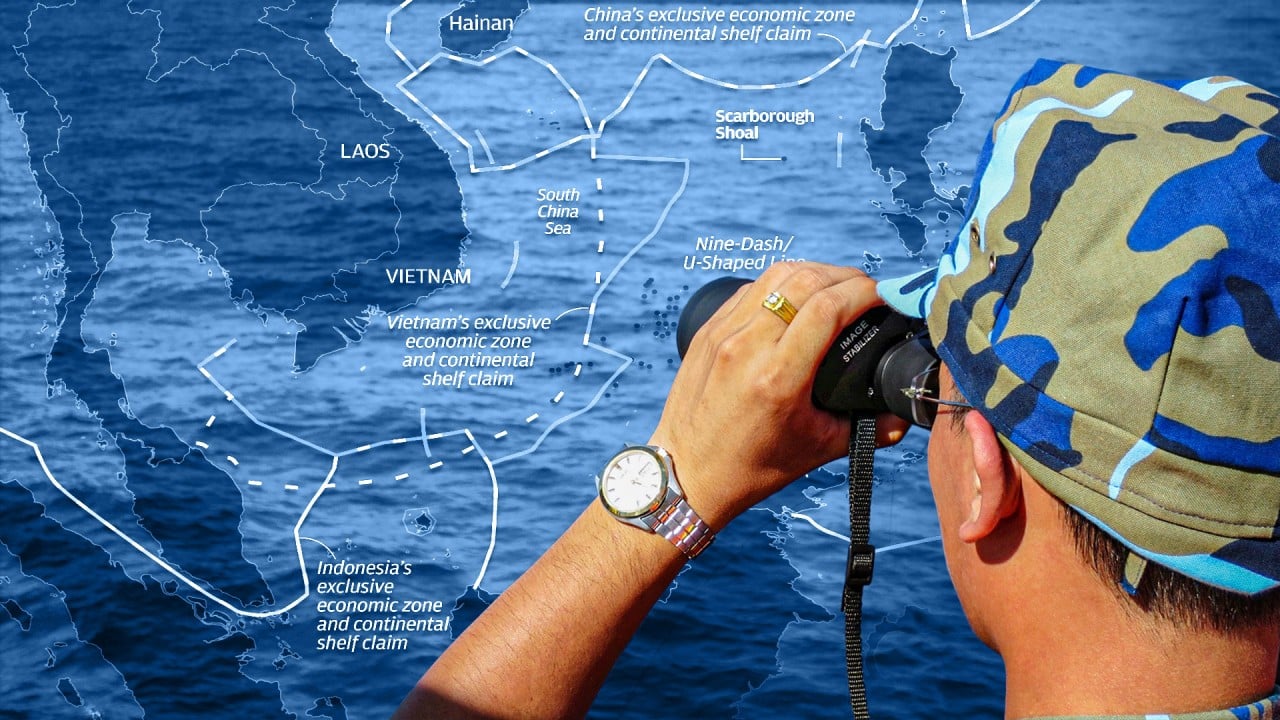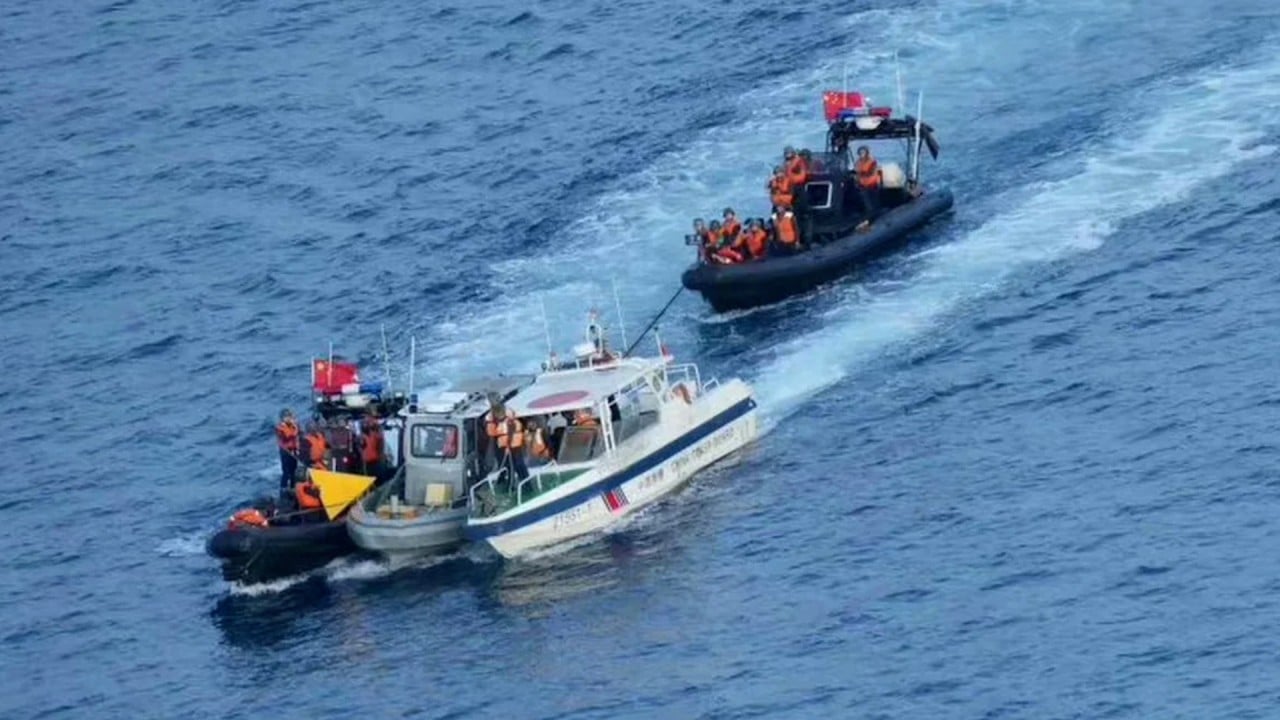
South China Sea: Hague ruling rejected by Beijing still casts long shadow over dispute
- With Manila willing to return to talks despite clashes, Beijing should respond positively and avoid ‘nightmarish scenario’ of another arbitration
According to people with knowledge of the situation, Beijing remains deeply worried about the lasting impact of the 2016 ruling, which marked a legal precedent for dispute settlement and a turning point in China’s ties with its neighbours in Southeast Asia.
Although China gained the upper hand in what started as a fishing dispute in 2012 near the contested Scarborough Shoal, known as Huangyan Island in China and Panatag Shoal in the Philippines, it was the trigger for Manila to take the matter to the Hague-based tribunal the following year.
That was doubtlessly one of the most important moments in the internationalisation of the South China Sea dispute, defying strong opposition from Beijing.
The ruling dealt a major blow to Beijing’s claims over much of the disputed waters under what it calls its historic “nine-dash line”, and has since been deemed a taboo topic in Chinese interactions with the Association of Southeast Asian Nations (Asean), several mainland-based observers said.
The 10-member bloc includes several South China Sea claimants. But apart from the Philippines, most Asean members – including Vietnam, a rival claimant that voiced support for the 2016 ruling – have largely refrained from publicly mentioning the arbitration case for fears of aggravating China.
The arbitral award has also galvanised international critics of China’s assertive posturing, with the United States and its allies often singling out Beijing for its alleged “militarisation” of the vast, resource-rich South China Sea and ignoring the “final and legally binding” decision.
As military tensions between China and the Philippines approach boiling point over a string of violent confrontations in the disputed waters, analysts have warned of growing risks of a second arbitration case against Beijing.
“The chance of another arbitration initiated by the Philippines is fairly high,” a Chinese expert said privately. “It is like a sword hanging over China’s head that other claimant countries can make use of whenever they want.”
While it is still too early to tell whether Beijing would want to participate in such an international arbitration, experts said it was at least partially prepared for the “nightmarish scenario”.
The Chinese foreign ministry issued a warning against such a move late last month, with spokeswoman Mao Ning reiterating that the 2016 arbitration under the United Nations Convention on the Law of the Sea (UNCLOS) was “illegal”.
But while ties with the Philippines are unlikely to return to the era of Beijing-friendly former president Rodrigo Duterte, it may not be too late to avoid a second arbitration.
Manila is trying hard to bring Beijing back to the negotiation table to resolve the dispute peacefully, Philippine foreign minister Enrique Manalo said on Tuesday, just a week after one of their worst maritime confrontations.
While diplomatic dialogue itself may not be enough, both sides should at least take urgent steps to lower tensions and avoid any potential armed conflict.
As Manila has shown a willingness to return to talks, Beijing should also respond positively, by refraining from using force and moderating its rhetoric towards Philippine President Ferdinand Marcos Jnr and his pro-US stance.
Beijing should probably also rethink its approach towards Manila, which is widely viewed as aggressive and hostile. This is especially so when it comes to the disputed Second Thomas Shoal, known in China as Renai Jiao, a part of the Spratly Islands claimed by both sides.
Their latest and most violent confrontation took place in waters off the shoal on June 17.
While Beijing may have a hard time appreciating the fact that smaller nations such as the Philippines have agency too and are capable of making sovereign decisions, it should at least try to avoid seeing everything Manila does through the lens of the US-China rivalry.



